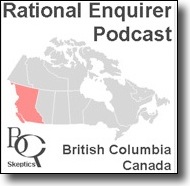
Arthur P. Grollman, MD
Fellow
Stony Brook, New York, USA
Even when overwhelming evidence of injury is reported in the medical literature,
the FDA lacks staff and resources to document its case in a court of law.
Meanwhile, the public continues to purchase dangerous products.
—Arthur P. Grollman, MD
Arthur P. Grollman, MD, directs the Laboratory of Chemical Biology (LCB) at Stony Brook University. He is also the founding Chair and Distinguished Professor of Pharmacological Sciences and the Evelyn G. Glick Professor of Experimental Medicine at this university.
Dr Grollman is a recognized expert on the clinical pharmacology of herbal medicines and testified on this subject before the White House Commission on Alternative and Complementary Health Policy, the Senate Subcommittee on Commerce, Science and Transportation (Sen. John McCain, Chair) and Governor George Pataki’s Task Force on Life and Law. He has also served on numerous scientific editorial boards and advisory committees.
Dr Grollman received his medical degree from the Johns Hopkins School of Medicine. He conducted research at the National Institutes of Health before joining the faculty of Albert Einstein College of Medicine. He began his career at Stony Brook in 1974. Dr. Grollman has also served as Attending Physician in Medicine at hospitals associated with the Albert Einstein College of Medicine and with the School of Medicine at SUNY-Stony Brook. He has held Visiting Professorships at Stanford University, Johns Hopkins School of Medicine, University of California at San Francisco, the National Cancer Research Center (Japan), and the Weizmann Institute (Israel).
Dr Grollman has published more than 200 papers in the fields of molecular biology and cancer research. Dr Grollman’s work at LCB focuses on the biological consequences of DNA damage with specific reference to molecular mechanisms of DNA replication, mutagenesis, and DNA repair. In 2000, he relinquished his administrative responsibilities to devote full time to research. Current research focuses on molecular and cellular mechanisms involved in the nephrotoxicity of the human carcinogen, aristolochic acid.
Dr Grollman and his colleagues provided a model of instigations for environmental diseases in their search for the cause of Balkan endemic nephropathy. For many years, residents of farming villages along the Danube River basin suffered from a fatal kidney disease and an associated urinary tract cancer. The cause of the disease remained a mystery for more than 50 years until Dr. Grollman and colleagues determined that home-baked bread is implicated in the disease. Suspecting a specific environmental toxin, they discovered that bread was contaminated with aristolochic acid, a powerful kidney toxin and human carcinogen found in Aristolochia weeds that grow in Balkan wheat fields. Aristolochic acid is also found in herbal remedies used for centuries in Europe, Asia, and the Americas. Now these common herbal remedies are implicated as the cause of aristolochic acid-induced kidney disease and associated cancers.
Selected Publications:
- “Limitations of ‘evidence-based indications’ for herbs” (with DM Marcus), Mayo Clinic Proceedings, 2007 Nov; 82(11):1433.
- “Review for NCCAM is overdue” (with DM Marcus) Science, 2006 Jul 21; 313 (5785):301-302 [DOI]; discussion, 2006 Nov 17; 314(5802):1083-1084. [DOI]
- “Debating the worth of NCCAM research” (with DM Marcus), Science, 2006 Nov 17, (314)5802:1083-1084. [DOI]
- “Ephedra-free is not danger-free” (with DM Marcus & SM Wolfe), Science, 2003 Sep 19; 301(5640):1669-1670. [DOI]
- “Selling danger by the bottle,” The Baltimore Sun, 2003 Feb 28.
- “Unregulated herbal remedies — an accident waiting to happen,” Chicago Tribune, 2002 Dec 24.
- “Botanical medicines: the need for new regulations” (with DM Marcus), New England Journal of Medicine, 2002 Dec 19; 347(25):2073-2076. [extract]
- “Calling for evidence in medical education about ‘alternative medicine,’” National Council Against Health Fraud Newsletter, 2001 Nov-Dec.
- “Adulterants in Asian patent medicines,” The New England Journal of Medicine, 1998 Sep 17; 339(12):847. Letter.
Guest Editor:
- “Foreword: Is there wheat among the chaff?” Academic Medicine, 2001 Mar; 76(3):221-223. [Special Issue on “Alternative medicine: the importance of evidence in medicine and in medical education.”]
- “From Dr. Grollman,” Academic Medicine, 2002 Sep; 77(9): 871-873. Editor’s note about Special Theme on complementary, alternative, and integrative medicine.
In the News:
- “Yes we can! We can abolish the NCCAM!” by Kimball Atwood, Science-Based Medicine, 2009 Jan 23.
- “Alternative medicine debate,” by James Hrynyshyn, Science Blogs, 2006 Jul 21.
- “Company touts pills for middle-age ailments: unproven claims have raised legal issues, consumer complaints,” MSNBC, Associated Press, 2004 Nov 22.
- “American Botanical Council calls for expert herb advisory panel,” American Botanical Council, 2002 Dec 18.
Selected Presentations:
- “Unraveling the mystery of an environmental disease,” Brookhaven Science Associates, Brookhaven Lab, 2008 May 15.
- “[Panel session IV:] Concerns about CAM and CAM research,” White House Commission on Complementary and Alternative Medicine Policy, 2001 May 15.
Listen to Grollman:
”The pharmacology of herbal remedies and the placebo effect,” Rational Enquirer, BC Skeptics, 2005 Aug 4.
Selected Honors:
- Henry Strong Dennison Scholar in Physiological Chemistry
- American Cancer Society Scholar in Cancer Research (1983, 1991)
- Hnilica Memorial Lecturer, Vanderbilt University
- Engebretson Lecturer
- MERIT Award, National Cancer Institute
- Forscheim Professor, Weizmann Institute of Science (1998)
- Lady Davis Professor, Hebrew University of Jerusalem (1999)
- Johns Hopkins Society of Scholars
- Distinguished Lecturer: Brookhaven National Laboratory
The Online Art Grollman:






